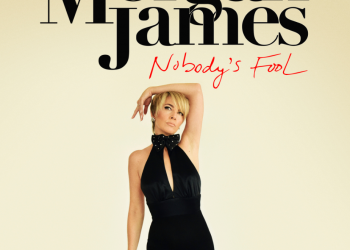Not only are things not set in stone when it comes to an Aaliyah film and posthumous album, but there’s still some legal issues over the ownership of her music. The singer has been gone for over a decade, but things are shaky when it comes to her music catalog.
TMZ reports that a music publisher called Reservoir Media Management is suing a record company called Craze Productions for selling Aaliyah’s songs via the internet without their consent.
Reservoir, who acquired ownership of the songs in 2012, claims Craze has been illegally selling songs from the late songbird’s albums Aaliyah and One in a Million on iTunes. They want to collect the funds owed to them as well as halting Craze further from selling any more Aaliyah music.
Can we get these issues straightened out, please, so we as fans can enjoy the legacy she's left behind without drama and controversy?
Aaliyah’s music has been captivating audiences for decades, with her unique brand of R&B and hip hop. But now the late singer’s legacy is at stake in a legal tug of war between two parties who are vying to control her music catalog. In this article, we will explore why Aaliyah’s music is caught up in such a dispute and what could be done to ensure that it remains intact.
The death of Aaliyah Dana Haughton on August 25th 2001 was a tragedy felt around the world by legions of devoted fans. Having sold millions of albums worldwide, she had become one of the most successful female acts in contemporary music history. Now almost twenty years later, her work still resonates with people everywhere – but there’s a problem looming over her musical legacy: Who owns the rights to Aaliyah’s songs?
Two entities have stepped forward claiming copyright ownership over her catalogue: Blackground Records (the label which released all three of Aaliyah’s studio albums) and Reservoir Media Management (which acquired the majority share from Blackground in 2011). They both want control over how Aaliyah’s music can be used or licensed for commercial purposes – yet neither party wants to let go without an almighty fight. Let us take a closer look into this battle that could determine the future of Aaliyah’s beloved works.
Background To The Dispute
The legal tug of war over the music of Aaliyah, a late singer and actress, has been ongoing for years. Since her death in 2001, there have been numerous disputes between those who are trying to control the use of her music and recordings. The main players involved in this dispute are Aaliyah’s estate, Blackground Records, Universal Music Group (UMG), and Drake.
At the center of this dispute is a recording contract that was signed by Aaliyah with Blackground Records before she died. The contract gives Blackground exclusive rights to Aaliyah’s master recordings. UMG then purchased some of these masters from Blackground in 2013 but did not get permission from either the estate or Blackground. This led to legal action taken against UMG by both parties seeking an injunction on the sale and distribution of any material featuring Aaliyah’s work without their consent.
In 2020, things became more complicated when rapper Drake attempted to release an album containing previously unreleased songs written and performed by Aaliyah which were produced by him and Noah “40” Shebib. While it appears that Drake had obtained permission from both the estate and Blackground to do so, he eventually decided not to go ahead with his plans due to pushback from fans online over his involvement as well as issues around royalty payments for use of the song samples used in some of the tracks on the album.
Impact Of The Conflict
The ongoing dispute over Aaliyah’s music has had far-reaching impacts. Despite the fact that her estate and Blackground Records have attempted to protect her legacy by controlling how it is used, some of her songs continue to be bootlegged and illegally distributed online. This means they are not receiving royalties for their work, which can cause financial issues for both parties.
Furthermore, as was seen with Drake’s abandoned album project, there is a risk of unauthorized use of Aaliyah’s material when those who want to honor her memory lack permission from the appropriate parties. This can lead to negative public sentiment towards such projects, making it difficult for them to succeed even if done in good faith.
Additionally, due to the complexities of copyright law surrounding musical works, any disputes between multiple parties can become extremely complicated and lengthy processes. As we’ve seen in this case, legal action taken against UMG dragged on for years before all parties could reach an agreement about how best to move forward with Aaliyah’s music going into the future.
Conclusion
I. Summary of the Dispute:
The dispute over Aaliyah’s music involves her former label, Blackground Records, and its current owners. The conflict has been ongoing for years with both sides claiming rights to some or all of her unreleased material. Her family is also involved in the legal tug-of-war as they are trying to preserve their daughter’s legacy.
II. Impact of the Conflict:
This legal battle has had a major impact on fans who were eagerly awaiting new Aaliyah music. It remains uncertain when any of this previously recorded material will be released due to the complex nature of the dispute between Blackground Records and other involved parties. Additionally, Aaliyah’s estate may have further difficulties because she did not leave behind an official will before her passing in 2001.
III. Final Thoughts:
Aaliyah was one of the most talented artists ever, so it’s unfortunate that this situation has dragged on for so long without resolution. Hopefully soon we can hear her amazing work again and show our appreciation for an artist whose influence is still felt today by many generations of music lovers across the globe. As a fan myself, I’m keeping my fingers crossed that there is a positive outcome for everyone involved in this case sooner rather than later!








